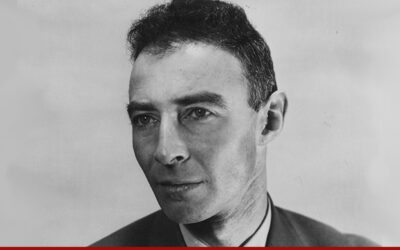And so begins the next chapter for the most visible survivors of Internet 1.0., AOL and Yahoo. AOL began life as a dial-up Internet Service Provider, forced to turn content provider when consumers moved on to higher bandwidths. Yahoo! began as a directory of web listings, turned into a search engine company and ultimately an ad-backed content company. Each has pivoted more times than Lebron James, with a dozen CEOs picking up the gauntlet, reorganizing, often to no avail.
The torch passed yet again this week. Verizon sold AOL and Yahoo to Apollo Management, washing its hands of its foray into the media business. Quick refresher: Verizon purchased AOL in 2015, after AOL was spun off independently from its failed merger with Time Warner. Yahoo, along with a handful of other promising tech media properties including Engadget and Techcrunch, was purchased shortly after. The amalgam of properties were consolidated as Oath (the fodder for many industry jokes) and then rebranded as Verizon Media (the subject of even more jokes) in 2018. Despite Verizon Media’s impressive content, its creation of an advertising technology platform, and the fact that it had the “pipes” to access millions of users, it never managed to attract enough ad revenue to effectively compete with other media properties.
The new owners, Apollo Management Group, a private equity company (known by some as “vulture capitalists”) have an eclectic (Or should I say wacky?) portfolio that includes everything from Michaels craft stores, CareerBuilders, University of Phoenix, Coinstar, RackSpace, and most recently the Venetian Hotel in Las Vegas. Why shouldn’t it make sense to add Yahoo and AOL to that esteemed portfolio? Even Jeffery Epstein helped define the company, for better or worse. Longtime CEO and Chairman Leon Black was recently forced to step down amid revelations about his close associations with Epstein.
We don’t know much yet about Apollo’s plans other than that the new company will simply be called Yahoo and that K. Guru Gowrappan, the ever upbeat and savvy CEO of Verizon Media will continue to run the company. Publicly, Guru has expressed corporate-speak enthusiasm, saying “The past two quarters of double-digit growth have demonstrated our ability to transform our media ecosystem. With Apollo’s sector expertise and strategic insight, Yahoo will be well positioned to capitalize on market opportunities, media and transaction experience and continue to grow our full-stack digital advertising platform.” Perhaps his tongue was silvered by the cash retention bonus of $3 million he’s getting for staying. Apollo acquired Verizon Media at a ‘half price’ sale; Verizon paid nearly $9 billion for all the properties but sold them for only $4.25 billion.
Can a private equity firm do better than a telecom as an owner? Martin Cooper, the father of wireless and author of the recent book Cutting the Cord, summed up the Verizon Media sale in an email exchange: “I am delighted Verizon is selling AOL and Yahoo. They would have ultimately failed in that environment, reducing competition in the media industry. AOL and Yahoo are in a highly competitive industry where sensitivity to customer desires and flexibility are crucial skills. That doesn’t sound like the phone company, does it?”
Over the years, AOL and Yahoo! churned through a vast and talented alumni workforce. If you’re in the media business, either in editorial or publishing, being an AOL/Yahoo! graduate is like your Ivy League degree. You’ll definitely know who to call when you need an “in”.
I caught up with a few of them and asked them to share their reflections.
David Pogue was hired by Marissa Mayer at Yahoo!, first to head Technology and then Yahoo! Finance. Pogue was there during the transition to Verizon ownership. “At the time I thought ‘well, good.’ With a big company behind Yahoo at least everyone will stop telling me the company is about to go under any day. And it’s true. People stopped predicting Yahoo’s demise.” But instead, he said, “they just started ignoring it completely.“
Pogue sums up his own 5 years at Yahoo as “a deal with the devil”. Yahoo’s main business model was then based on algorithmically placing articles from all over the web in your feed. The problem with hiring its own journalists is that they were competing with journalists from other organizations. “So I’d review a new iPhone but the home page featured everyone but me, reviewing the same iPhone,” Pogue explained.
“It was a lucrative offer at a time I needed lucre”, he jokes, “but I was completely hidden as a writer. You couldn’t search for me or subscribe to me. It was like hiding under a barrel.” High profile journalists, most notably Katie Couric, found themselves under the same barrel. The fundamental business model worked against Yahoo’s high-paid content. Pogue doubts that will change under new management.
I also tracked down Jenni Baird, who was AOL’s Executive Director from when it was a standalone company through the Time Warner merger. Today, Baird is SVP of Product at News Corp.
She recalls her AOL days fondly, from creating the aggregate AOL home page with AOL’s proprietary system, to migrating the whole thing to HTML and custom content. She suggests the Time Warner/AOL merger didn’t work primarily due to radically different cultures–old boy print and publishing meeting the hot new kid on the block. “Time Inc. hated AOL because it diluted their shareholder value. They were forced to play in a sandbox they didn’t want to be in”.
For Baird, AOL’s sale to Verizon made a lot of sense. “Both AOL and Yahoo had scale and Verizon had an audience to scale to.” She believes Yahoo, AOL, and Verizon altered the world of programmatic ads, but could never quite deliver relevant ads and content to the right audiences. The new owners, she believes, will face a real reckoning, because nowconsumer safety and privacy issues, cookies, and personal identity management will drive the conversation about the future of the Internet.
Patrick Houston ran Yahoo’s first Tech channel. He too survived reorgs, pivots and management changes. The Yahoo that Houston recalls repeatedly “snatched defeat from the jaws of victory”.
“While I was there in the mid-2000s it sent its media-centric execs like Terry Semel, Lloyd Braun, and Dan Rosensweig packing. Yahoo had a chance to take on its weakest competitors–traditional media companies that were far, far behind in figuring out a digital strategy. Instead, founders Jerry Yang and David Filo installed Sue Decker to take on its strongest competitor, Google.” It failed.
Playing Monday morning quarterback is easy, but the consensus from the rank and file is that the more things change, the more they stay the same. Internet media companies need an overhaul. “This is a typical Apollo deal, in that these are very iconic, industry-leading businesses, but they need a little tender loving care,” David Sambur, the firm’s co-head of private equity, told Private Equity News. Apollo is in the business of buying floundering properties and shining them up, then presumably spitting them out again for a higher price. It’s hard to imagine that a commitment to quality media drove the purchase any more than a commitment to arts and crafts drove Apollo to Michaels. On the other hand, Apollo seems slightly more likely than other private equity firms to invest in rebuilding its brands rather than simply slashing costs. At the moment, the value of its investments is rising as is its reputation for buying underperformers and accelerating their growth. Don’t throw out your AOL or Yahoo email addresses just yet.
Source: https://techonomy.com/2021/05/aol-yahoo-media-lives-kardashians/




